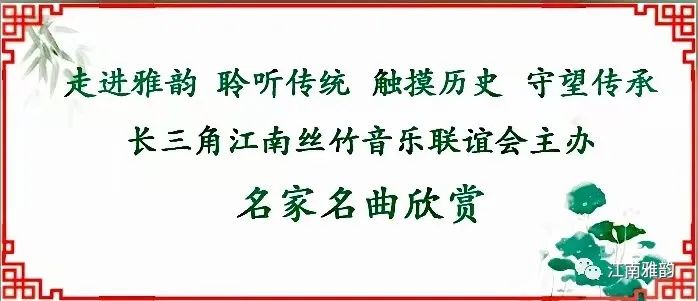0630翻译:月光曲(佚名)
Translation: Moonlight Sonata (Anonymous)
(translated by: alexcwlin; edited by: Adam Lam)
两百多年前,德国有个音乐家叫贝多芬,
Over two hundred years ago there was a musician in Germany by the name of Beethoven.
他谱写了许多著名的曲子。
He composed many famous pieces of music.
其中有一首著名的钢琴曲叫《月光曲》,
Among them one renowned piano tune went by the name of “Moonlight Sonata”.
传说是这样谱成的。
According to legend, it was created like this:
----------------------------------------------------------------------------------------------
有一年秋天,贝多芬去各地旅行演出,
One autumn Beethoven was on a performance tour in various places.
来到莱茵河边的一个小镇上。
He came to a small town by the bank of the Rhine.
一天夜晚,他在幽静的小路上散步,听到断断续续的钢琴声从一所茅屋里传出来,弹的正是他的曲子。
One night when he was taking a stroll on a quiet lane, he heard intermittent piano music playing his tune from a straw hut (1).
----------------------------------------------------------------------------------------------
贝多芬走近茅屋,琴声突然停了,
Beethoven walked near the hut (1) and the piano sound suddenly stopped.
屋子里有人在谈话。
People were talking inside the house.
一个姑娘说∶“这首曲子多难弹啊!
A girl said: “This tune is really hard to play.
我只听别人弹过几遍,总是记不住该怎样弹,
I only heard people play (2) several times but just cannot remember how I should play it.
要是能听一听贝多芬自己是怎样弹的,那有多好啊!”
Wouldn’t it be great if only I could hear how Beethoven plays it in person?”
一个男的说∶“是啊,可是音乐会的入场券太贵了,咱们又太穷。”
A male voice said: “Yes, but the concert ticket is too expensive and we are poor people.”
姑娘说∶“哥哥,你别难过,
The girl said: “Brother, don’t feel bad.
我不过随便说说罢了。”
I’m only making small talk.”
----------------------------------------------------------------------------------------------
贝多芬听到这里,
Beethoven heard what they said.
推开门,轻轻地走了进去。
He pushed open the door and walked in softly.
茅屋里点着一支蜡烛。在微弱的烛光下,男的正在做皮鞋。
The straw hut was lit by a candle and under faint light a man was making shoes.
窗前有架旧钢琴,前面坐着个十六七岁的姑娘,
An old piano was located before the window with a sixteen to seventeen year old girl sitting in front.
脸很清秀,可是眼睛失明了。
She had a pleasant face but she lost her eyesight.
----------------------------------------------------------------------------------------------
皮鞋匠看见进来个陌生人,站起来问∶“先生,您找谁?
The cobbler saw a stranger come in (2) and he stood up and asked: “Sir, whom are you looking for (3)?
走错门了吧?”
I’m afraid you’ve come to the wrong house, isn’t it.”
贝多芬说∶“不,我是来弹一首曲子给这位姑娘听的。”
Beethoven said: “No! I’m here to play a tune for this lady.”
----------------------------------------------------------------------------------------------
姑娘连忙站起来让座。
The girl quickly stood up to give him the seat.
贝多芬坐在钢琴前面,弹起盲姑娘刚才弹的那首曲子。
Beethoven sat in front of the piano and played the tune which the girl was playing just now.
盲姑娘听得入了神,
The blind girl was mesmerized.
一曲弹完,她激动地说∶“弹得多纯熟啊!感情多深哪!
When he finished playing one song, she said excitedly: “You really know this tune inside out and play it with deep emotions.
您,您就是贝多芬先生吧?”
Are you Mr. Beethoven?
----------------------------------------------------------------------------------------------
贝多芬没有回答,
Beethoven did not answer.
他问盲姑娘∶“您爱听吗?
He asked the blind girl: “Do you like hearing it?
我再给您弹一首吧。”
Let me play (4) another one for you.”
----------------------------------------------------------------------------------------------
一阵风把蜡烛吹灭了。
A gust of wind blew out the candle.
月光照进窗子来,
Moonlight shone through the window.
茅屋里的一切好像披上了银纱,显得格外清幽。
All things inside the straw hut seemed to have gauze-veil draping over them which made them unobtrusively beautiful.
贝多芬望了望站在他身旁的兄妹俩,借着清幽的月光,按起了琴键。
Beethoven looked at the brother and sister standing beside him, and under the serene moonlight he started to press the piano keys.
----------------------------------------------------------------------------------------------
皮鞋匠静静地听着。
The shoemaker listened quietly.
他好像面对着大海,月亮正从水天相接的地方升起来。
It seemed he was looking at the ocean and the moon just rose from the horizon where water met sky.
微波粼粼的海面上,霎时间洒满了银光。
In a flash the rippling clear sea was sprinkled with silvery light.
月亮越升越高,穿过一缕一缕轻纱似的微云。
The moon rose higher and went through wisps of lace-like clouds.
忽然,海面上刮起了大风,卷起了巨浪。
Suddenly a raft of wind came across the ocean and stirred up giant waves.
被月光照得雪亮的浪花,一个连一个朝着岸边涌过来……
These waves, with froth which turned snowy white under moonlight, dashed towards shore one after another.
皮鞋匠看看妹妹,月光正照在她那恬静的脸上,照着她睁得大大的眼睛,
The cobbler looked at his sister and moonlight was shining on her serene face and wide-open eyes.
她仿佛也看到了,看到了她从来没有看到过的景象,月光照耀下的波涛汹涌的大海。
She seemed to be able to see a scene which she had never seen before, and that was an ocean with surging waves under bright moonlight.
----------------------------------------------------------------------------------------------
兄妹俩被美妙的琴声陶醉了。
The brother and sister were spellbound by the wondrous piano music.
等他们苏醒过来,贝多芬早已离开了茅屋。
When they came to, Beethoven had already left their straw hut.
他飞奔回客店,花了一夜工夫,把刚才弹的曲子——《月光曲》记录了下来。
He ran back to the hotel and worked the whole night to record the tune he just played—“Moonlight Sonata”.
----------------------------------------------------------------------------------------------
附注:
(1)“a straw hut” and “the hut”
When the “straw hut” was first mentioned, using “a” is appropriate since readers do not have any “straw hut” in mind and it could be any “straw hut”. We should not skip “a” (i.e., saying “straw hut” instead of “a straw hut”) because it is not a general discussion about “straw hut”, but “one” straw hut at issue.
When the “straw hut” is mentioned again in the immediately following sentence, we all know which “straw hut” is being referred to and using “the” is appropriate. The word “straw” in “straw hut” can be abbreviated because we know “hut” refers to that “straw hut” we just discussed.
(2)“heard people play”, “saw a stranger come in”
Shouldn’t we say “heard people played” and “saw a stranger came in” since it is Past Tense after all?
Verbs of perception—see, watch, hear, listen, feel, smell, notice, observe—are followed by bare infinitive (i.e., infinitive without “to”—“to” is referred to as “marker” by grammarians), like this:
Subject + verbs of perception + object + bare infinitive. Examples are:
I heard her sing.
He felt the earth shake.
I saw him fall.
(3)“who” or “whom”
Should it be “Sir, whom are you looking for?” or “Sir, who are you looking for?”
Use “who” when the person at issue is the subject and “whom” when he is the object.
Since the answer is “I am looking for him” and “him” is the object, therefore “whom” is correct.
However, in conversational English, using “who” is acceptable, i.e., “Sir, who are you looking for?” is fine. But if you are in school or writing document, use “whom” is safer.
(4)“Let me play”
Similar to (2) above, let belongs to a group of verbs (have, get, let make) which is followed by bare infinitive in some cases, like this: have/get/let/make + object + bare infinitive. For example:
I will have him beg for forgiveness.
I cannot get him do something he doesn’t like.
Let him sing the way he wants.
I’ll make him cry.





